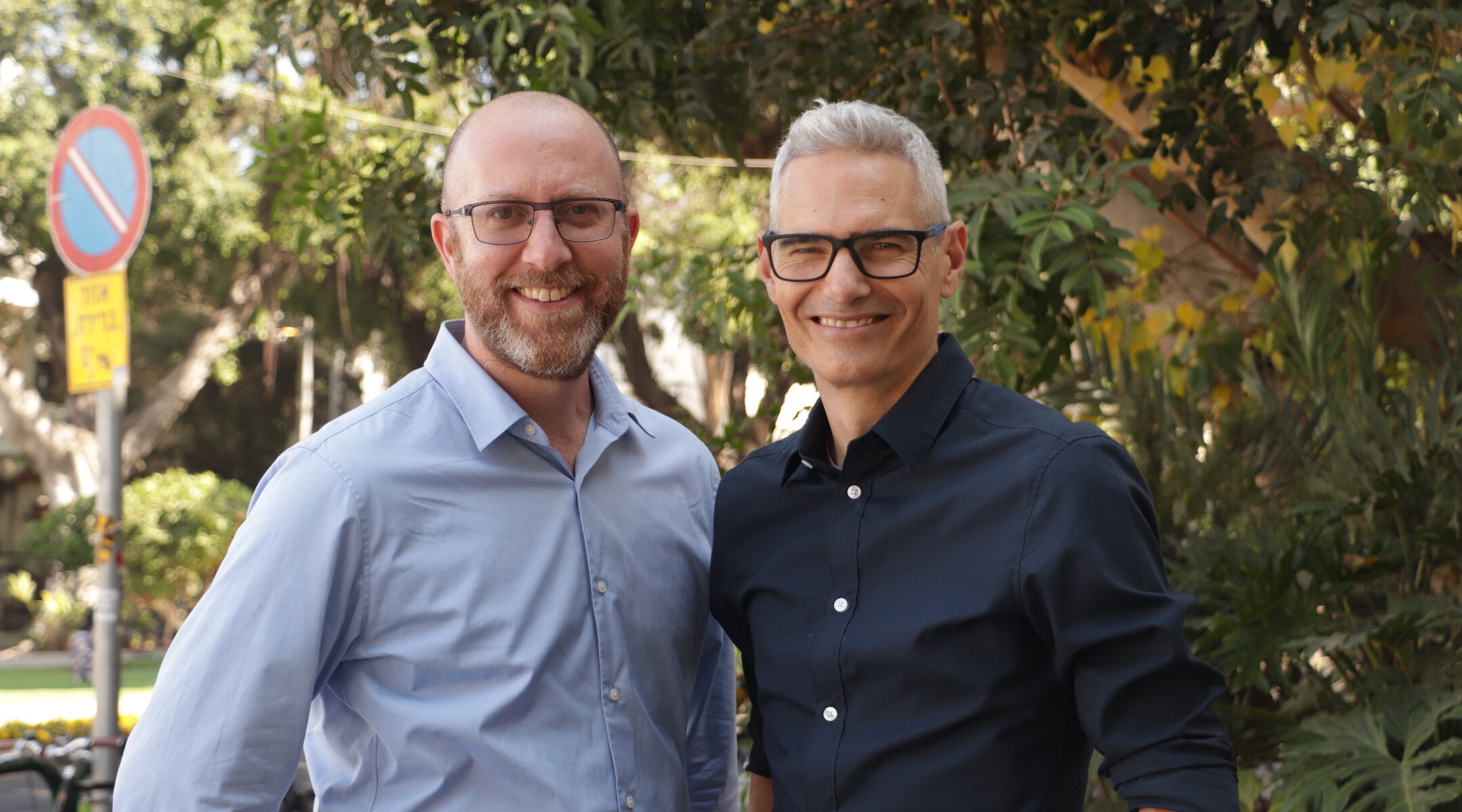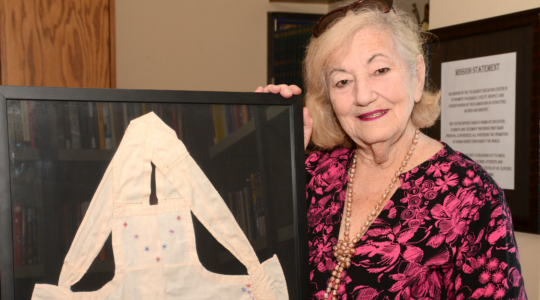(New York Jewish Week) — There’s an old joke about Israel (we’ll spare you the too-long set up) that ends, “Before you were a tourist — now you’ve made aliyah.” In other words, whatever preconceptions you had about Israel, they will be shattered once you make the decision to live there.
Joel Chasnoff and Benji Lovitt are two Americans who live in Israel, and they understand the gap between perception and reality. They’ve written what they consider an insider’s guide to the Jewish state, “Israel 201,” which sets out to explain the Israeli psyche when it comes to everything from vocabulary and cuisine to religion and military service. They don’t ignore the Israeli-Palestinian conflict, but write that “as impactful, significant and tragic as the conflict is, Israel is so much more that.”
They also understand jokes. Chasnoff, originally from Chicago, and Lovitt, who grew up in Dallas, both make their livings as professional comedians, mostly for Jewish audiences. But while often lighthearted, the book is a serious attempt to get past the cliches, good and bad, about a place that is both demonized and idealized, but too seldom seen as the real country it is.
Over email, the pair answered our questions on Yom Haatzmaut, during which Israel’s 75th year of independence was being celebrated amid national anxiety over the country’s far-right government. On Thursday evening, April 27, the two will appear at an “Israel 75” Comedy Night at the Stephen Wise Free Synagogue in Manhattan (30 West 68th Street, 7:00 p.m. Get tickets here).
New York Jewish Week: I hate to say “too soon” after 75 years, but do you think readers are ready to laugh with Israel? What do two Jewish comics bring to readers’ understanding of the country?
Chasnoff and Lovitt: Absolutely! Comedy is all about finding the overlooked contradiction and this book, and Israel, are full of them. Throughout our comedy/book tour, we have found crowds who are eager to laugh at and with Israel, even during the current news cycle. Per the book itself, readers especially have told us that they like the 10-question quiz, “How Israeli are You?”, that kicks off the book. That said, there are plenty of serious sections of the book with no laughs at all, such as the power of Yom Hazikaron [Israel’s Memorial Day, marked this past Tuesday]. Comedy is a great tool for introducing complicated topics into a conversation, and it’s definitely an important one in our arsenal.
What’s the single biggest thing people get wrong about Israel?
For one thing, many assume that daily life is consumed by the Arab-Israeli conflict, worries of a nuclear Iran and other threats. One thing we tried to make clear is that daily life continues, even in the most difficult of times. For example, a standup comedian will take the stage just hours after a terror attack a few miles away, and acknowledge in a clever way the tragedy the country has just endured.
In addition to what they get wrong, there are also the aspects of life that people simply don’t know about but are hugely impactful on how Israelis think and live. In “Israel 201,” we wanted to show how Israeliness infuses every angle of daily life, from children who create their own recess games because their school lacks a playground to the Academy of the Hebrew Language, which debates and creates new words to the Israeli lexicon based on current trends of the country.

“Israel 201” includes interviews from Israelis from all walks of life. (Geffen Publishing House)
Books of Israel advocacy bring to mind the old joke, “Other than that, Mrs. Lincoln, how was the show?” — in the sense that no matter how Israel’s supporters attempt to “normalize” the country, the outside world will always associate the country with conflict, religious strife and the Israeli-Palestinian dispute. Who is the intended audience for your book, and were you expecting to change any minds?
Anyone in Israel advocacy knows to target the supporters and undecideds, not the “haters” who you’ll never convince. Though we don’t see this book as advocacy, most of our readers are Jewish. What makes “Israel 201” special however is that it’s equally entertaining for someone who’s only visited for a 10-day trip as for someone who made aliyah 30 years ago. It’s precisely because it’s a “next-level guide” that people of varying levels of Israel experience can learn from it. That said, we’ve heard from readers who’ve never visited that this was a great entry point due to its focus on daily life and what they might see firsthand.
I think your book came out too late to deal with or anticipate the current “constitutional” crisis in Israel, and the protests over the government’s judicial reforms. But what understandings does your book bring to the current showdown? Are you optimistic about Israel’s future?
Actually, despite the book’s release in March, we feel that the book is filled with examples of these existential questions that Israel grapples with. In the final chapter, we interviewed David Passig, a futurist who foresaw past world events such as 9/11 and the 2008 financial crash. We were actually surprised by how optimistic he was about the country’s future. He noted that it’s hard to have perspective or see the bigger picture when you’re smack in the middle of it. This isn’t the first time Israel has feared for its future. On the eve of the Six-Day War, the Jewish world believed that we were literally on the brink of extinction. All countries go through tremendous growing pains, but if the Zionist pioneers had been able to see what we’ve achieved in the last 75 years, they wouldn’t have believed it. During our five years of writing the book, we repeatedly encountered incredible resilience, from advocates for women’s rights to the rise of LGBTQ activism in the IDF. It is this resilience which makes us optimistic.





